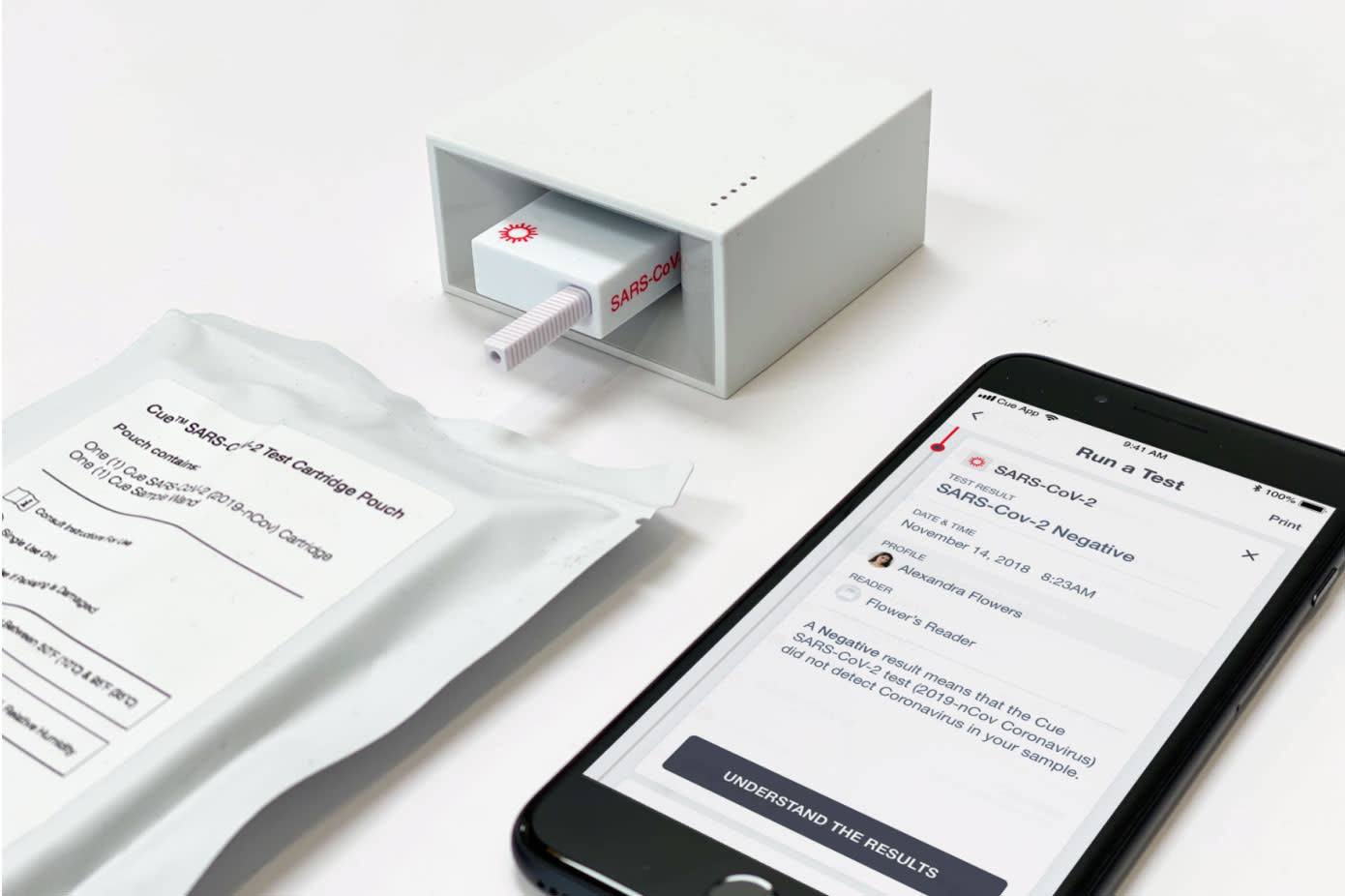HHS launches pilot program in five states using rapid Covid test deployed by NBA

The Department of Health and Human Services said Thursday it has launched a pilot program with five states to introduce a rapid, point-of-care Covid-19 test, using the same diagnostics the National Basketball Association employed to finish its season.
The pilot program — adopted by Florida, Louisiana, New Jersey, Texas and Alaska — is expected to run up to 100,000 tests per day by spring, according to the federal contract and HHS officials. The NBA relied on the tests, developed by California-based Cue Health, to create an isolation zone at Walt Disney World near Orlando to protect its players so they could finish out the last eight games of the 2019–20 regular season and 2020 playoffs.
Adm. Brett Giroir, assistant secretary of Health who leads the U.S. government’s testing effort, told CNBC the states were chosen “due to their considerable Covid cases and their great partnerships throughout the pandemic.”
Many epidemiologists and health specialists have been calling on the government to ramp up production of rapid tests to help contain the coronavirus, which is setting record-high daily new cases. Widespread testing is aimed at identifying infectious people early on to cut off chains of transmission while helping to reopen businesses and schools.
The test by Cue, which is backed by investors including Johnson & Johnson, is a molecular test that uses a sample collected from the lower part of the nose with a swab and produces results in about 20 minutes.
The test can be processed outside of a clinical laboratory, HHS said, allowing it to avoid some of the bottlenecks and delays that plague other molecular PCR tests when demand for testing surges. Testing that requires lab analysis can take days, especially when the sample needs to be shipped to a lab.
Cue developed the test in partnership with the Biomedical Advanced Research and Development Authority, which is part of HHS. The partnership began in 2018, when BARDA awarded $14 million to Cue to develop a molecular influenza test with the option to extend the agreement up to 60 months for a total of $30 million. Early in the pandemic, BARDA expanded its partnership with Cue to develop a test for the coronavirus.
Last month, HHS and the Defense Department announced that they awarded Cue a $481 million contract to quickly ramp up manufacturing of the test. The contract requires Cue to increase production to 100,000 per day by March, with the U.S. acquiring 6 million tests and 30,000 lab instruments used to process the tests.
Giroir said the test “is very easy to use and is read automatically, eliminating the possibility of misreads by the user.”
Cue said its test is among the most promising in development because it’s more accurate than antigen tests, which sometimes need to be confirmed by a molecular test, and because it produces results more rapidly than lab-based PCR tests.
“With Cue’s COVID-19 Test, verifying the antigen test results can be done on the spot in many cases,” Giroir said in a statement. “The pilot program will help us determine how well the Cue test will be adapted in institutions and communities.”
HHS currently sends millions of authorized antigen tests to states, nursing homes and elsewhere. Inaccurate results provided by the tests, however, have led to confusion in some states. A molecular point-of-care test will help offset concerns of false diagnoses, Cue Health founder and CEO Ayub Khattak said in a phone interview.
“The key is having the sensitivity of a laboratory test but the deployability of an antigen test,” Khattak said. “If you could confirm in 20 minutes versus in two or three days, that’s very helpful in getting to the right decision sooner in terms of the diagnosis.”
Cue said the tests will be used in the pilot program to confirm positive antigen tests and to retest “suspicious negatives” for people living in nursing homes, long-term care, assisted living facilities and veterans’ homes, among other high-risk locations. The Defense Department will use the tests internally, Cue said.
Cue said it will provide training support to participating facilities. Khattak said that as more states join the program, the company will collaborate with governors to provide the tests for potentially various settings, such as drive-thru testing clinics, schools and meat-packing plants.
Cue is providing HHS with 27,000 tests for the initial pilot program. But Khattak said he hopes the program expands to more states soon, adding that the company can provide “hundreds of thousands” of tests in December.
The Food and Drug Administration authorized the test in June to be used “anywhere under the supervision of qualified medical personnel,” the company said at the time. But Giroir noted in a statement to CNBC that the authorization for Cue’s test “includes testing of asymptomatic individuals.”
Abbott Lab‘s ID NOW test, which is also a rapid molecular test, is “currently only for symptomatic individuals,” Giroir said. “The level of detection for Cue appears to be better than ID NOW.”




